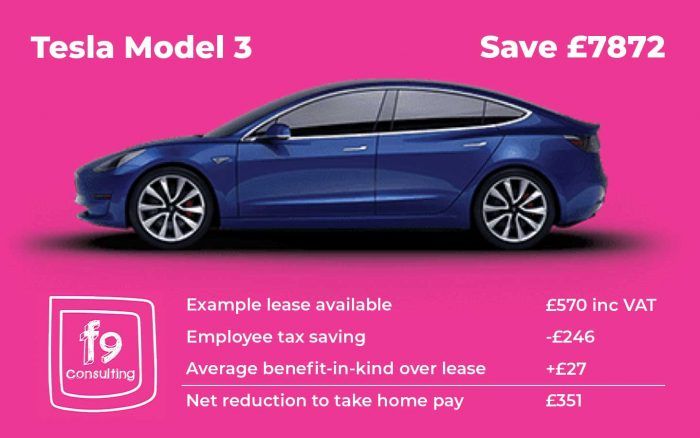Salary sacrifice schemes allow employees to exchange part of their gross salary and, in return, the employer provides a non-cash benefit. Electric cars are becoming a very popular benefit with this scheme, with employees having the opportunity to own their dream, electric vehicle with the monthly cost taken straight from their wages.
Once the cost of the vehicle has been taken from the wages, the income tax and national insurance contributions are then calculated on the remaining salary. The employee won’t pay any tax or national insurance on the part of their salary sacrificed to pay for their car.
The employee will still be subject to paying Benefit in Kind Taxation (BIK) because the vehicle will be theirs to use privately. However, as the BIK rate of electric vehicles is only 2%, there are huge tax savings to be made for the employee and national insurance contribution savings for the employer.
Are you considering setting up a salary sacrifice scheme for your staff? Get in touch today and we can discuss the options available to you.

As the BIK rate of electric vehicles is only 2%, there are huge tax savings to be made
Key Benefits
Employer:
• National insurance contribution savings
• Fully maintained and insured company cars with all in-life services managed and no daily hassle for employers
• Reduced fuel costs
• Employee engagement covered by leasing company
• Salary sacrifice schemes complement existing benefits
• No Ultra Low Emission Zone or Congestion Charge
• Increased employee engagement and retention
Employee:
• Brand new electric cars, at low monthly rates
• National insurance savings
• Flexible mileage and terms
• Fixed cost motoring with no service costs
• No Ultra Low Emission Zone or Congestion Charge

VAT
Under salary sacrifice, the employer is responsible for the lease and so pays the VAT. However, they can reclaim 10% of the VAT back.
Income tax
The employee forgoes a portion of income in exchange for a benefit, so the amount paid in income tax is lower.
National insurance contributions
Salary sacrifice is cost-effective for both employers and employees because national insurance contributions are saved by both parties. The more an employee earns the more national insurance contributions the employee must pay, meaning that forgoing some of their salary may mean saving money.
Book a free consultation
Do you have questions about a salary sacrifice scheme for your business? Get a free consultation and see how easy making the switch to F9 can be for your business.

















